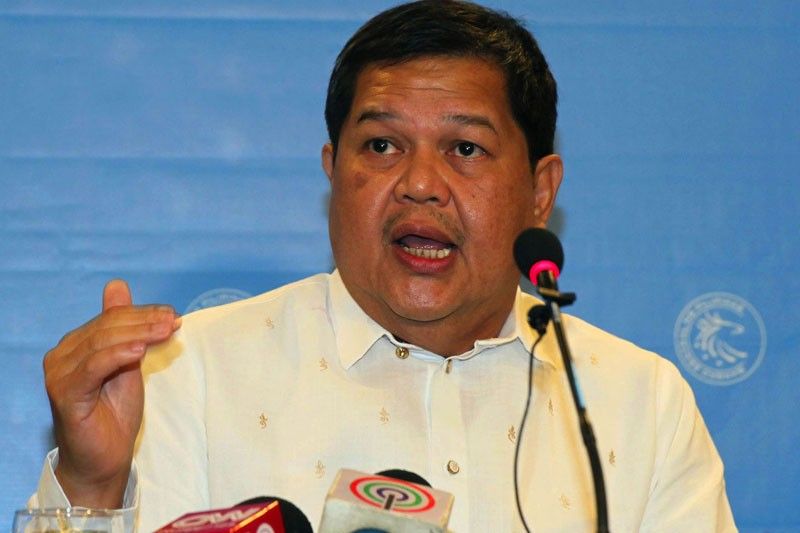BSP keeps rates steady

MANILA, Philippines — The Bangko Sentral ng Pilipinas (BSP) kept interest rates unchanged yesterday, but said it expects inflation to spike this year before easing next year.
BSP Governor Nestor Espenilla Jr. said the Monetary Board decided to maintain its policy rate steady at three percent, while the corresponding interest rates on the overnight lending and deposit facilities were also kept unchanged.
“There is no reason to move the policy rate because the data is not providing evidence for that. Today we don’t see evidence of propagation of inflationary pressures that could threaten our projected path by 2019 of inflation coming down within target levels. Nonetheless, there are risks to that outlook and that is why the Monetary Board also flags that we are not being sanguine about the outlook at all,” he said.
Espenilla said the Monetary Board’s decision was based on its assessment that while recent inflation outturns show an elevated path in 2018, the latest baseline forecasts continue to show inflation remaining within the inflation target in 2018 and moderating further in 2019.
The BSP chief pointed out the policy setting body also considered that prospects for domestic activity continue to be firm on the back of robust domestic demand, strong growth in credit and liquidity, and a sustained recovery in global economic growth.
“At the same time, the Monetary Board observed that the risks to the inflation outlook remain weighted toward the upside owing mainly to price pressures emanating from pending petitions for adjustments in minimum wages and transportation fares,” Espenilla said.
Espenilla explained non-monetary measures such as institutional arrangements in setting transportation fares and minimum wages, unconditional cash transfers, as well as transport subsidies are expected to help mitigate inflationary impulses.
Espenilla said the proposed reforms in the rice industry could also help temper price pressures.
Espenilla said the Monetary Board noted that inflation expectations have started to rise and would, therefore, need to be monitored closely in the coming months.
The BSP chief said economic growth remains solid enough to absorb some policy tightening if warranted.
For his part, BSP Deputy Governor Diwa Guinigundo said the Monetary Board raised its inflation forecast to 4.5 instead of 4.3 this year, but retained next year’s projection at 3.5 percent using the 2006 series.
The Philippine Statistics Authority (PSA) has shifted to the 2012 base year in the February inflation, but is expected to release two series including the 2006 base year until June this year.
Using the 2012 base year, Guinigundo said inflation would fall within the two to four percent target set by the BSP for 2018 and 2019.
Using the new base year, Guinigundo said inflation is seen rising to 3.9 instead of 3.8 percent this year before easing to three instead of 3.1 percent for next year.
Guinigundo explained the higher forecast for this year came from higher food prices due to the end of the harvest season, as well as the depreciation of the peso against the US dollar.
For next year, Guinigundo said the lower forecast for 2019 was due to the projected slower growth in oil prices, the effectivity of mitigants such as the rice tarrification and the conditional cash transfer program as well as lower base effects.
The BSP, he said, sees inflation peaking above the higher end of the two to four percent target by the third quarter, before easing back within the target.
“It is important to convey to the market players that we expect a reversion of inflation to the target path of two to four percent by 2019,” Guinigundo said.
Guinigundo said monetary authorities have not seen strong evidence of second round effects from the implementation of Republic Act 10963 or the Tax Reform for Acceleration and Inclusion (TRAIN) Law in terms of higher wages and transport fare.
In the past, Guinigundo explained both the Productivity and Wage Board, as well as the Land Transportation Franchising and Regulatory Board (LTFRB), have not been giving due course to wage and fare hike petitions on a one to one basis.
The US Federal Reserve yesterday hiked rates for the first time this year during the first meeting presided over by new chief Jerome Powell. It expects to raise rates two more times this year to match last year’s three rate increases.
“The BSP pursues an independent monetary policy. We have clarified in the past that our monetary policy positioning is not really in lock step with what the Fed does,” Espenilla said.
Espenilla said the assessment on domestic conditions particularly inflation developments drives monetary policy evaluation.
- Latest
- Trending

























